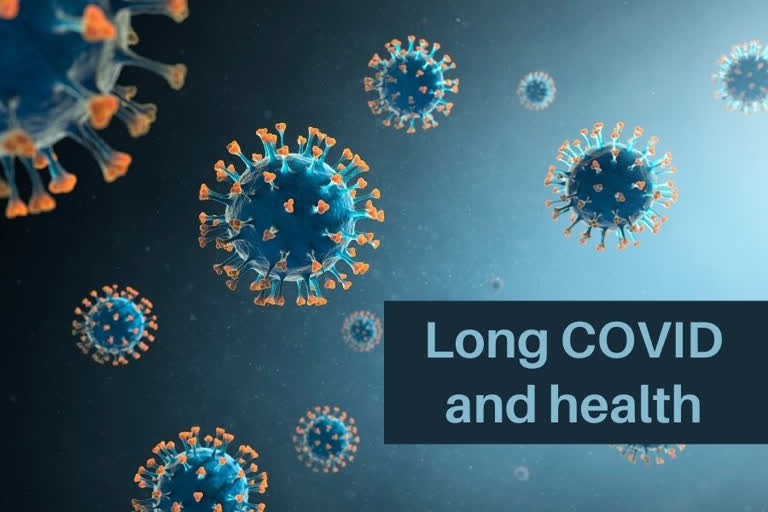Doctors say that even when the cases of COVID-19 were plateauing in India, many instances of long COVID were being observed with varied symptoms. There is no definitive number of long-COVID patients officially, but according to World Health Organisation, current evidence suggests approximately 10-20 per cent of people experience a variety of mid and long-term effects after they recover from the initial infection. It is usually seen three months from the onset of COVID infection and lasts for at least two months.
India has recorded the second-highest number of COVID-19 cases after the US. In India, as many as 4,30,40,947 people contracted the infection and 5,21,747 people lost their lives due to the disease.Dr Rakesh Pandit, senior consultant and head of the department of internal medicine at Aakash Healthcare, Dwarka, said the age group of 25 to 50 years has been hit hardest by long COVID.
"The lungs of those who were on Non-Invasive Ventilation or ventilator assistance during the COVID waves are now showing permanent damage. Long COVID also has an impact on the neurological system, kidneys, gastrointestinal tract, and neuromuscular and musculoskeletal systems," he told PTI. The doctor said progressive dyspnea, a condition characterised by breathlessness, is one of the most typical symptoms of long COVID.
Acute respiratory distress syndrome is another serious symptom, and some people have been discovered to have lasting lung damage. Musculoskeletal weakness and proximal muscle weakness have also been reported. "Some of them have also had dementia, memory loss, and hair loss. The texture of the skin has also deteriorated in some people. Weight loss of 15-20 kg has also been reported in some patients. Some have lost their appetite and are unable to regain it," Dr Pandit said. Pandit said some of his patients have also experienced eye problems.
Dr Vikas Maurya, the head of the department and director of pulmonology at Fortis Hospital in Delhi's Shalimar Bagh said long-COVID symptoms seen in patients include increased heart rate, loss of smell and taste, depression and anxiety, fever, dizziness while standing, and worsening of these symptoms after physical or mental activity. "These symptoms are severe in patients with comorbidities and the elderly. Patients who had mild COVID can exhibit these symptoms as well. It is important to rule out other causes and symptoms before diagnosing it as long-COVID," he said.
Given the recent spurt in COVID cases reported in some states, Dr Maurya stressed the importance of forming a post-COVID clinic/ long-COVID clinic, in hospitals because many patients may require multi-speciality treatment. The clinic should include cardiologists, neurologists, pulmonologists and ENT specialists, among others, he said.
"Pulmonologists have a comparatively bigger role in treating these patients because most COVID cases have lung involvement. These specialities under one roof will help patients get better and more effective treatment," Dr Maurya said. "We have also seen patients come in with stroke and other cardiac issues. These patients must consult doctors who have been treating them and are aware of their medical condition." These symptoms can affect patients both physically and mentally as well. So, it becomes important that they are treated in a systematic and better way, Dr Maurya added.
Dr Shuchin Bajaj, Founder Director, of Ujala Cygnus Group of Hospitals, said, "The main treatment for a lot of long-COVID symptoms that we have seen is supportive treatment. We don't have any specific treatment for long COVID. Supportive and symptomatic treatment in the form of painkillers or multi-vitamins, rehabilitation therapy, yoga, physical therapy are some of the things that we try and many have been successful," he added.
Dr Sushila Kataria, Senior Director, Internal Medicine at Medanta Hospital in Gurgaon said the only way to deal with long COVID is through paced and regular exercise, a nutritious diet, and an activity that calms the mind. "Also go back to your primary doctor and keep consulting him on what can be done. As of now, there are only a few patients coming in with tiredness and lethargy. One or two patients a day come in with these complaints which form 15 per cent of my patient load. Typically long COVID patients tend to start feeling better after six months. But this depends on the individual," the doctor said.
(PTI)
Also Read: Mental health may impact chances of breakthrough COVID: Study



